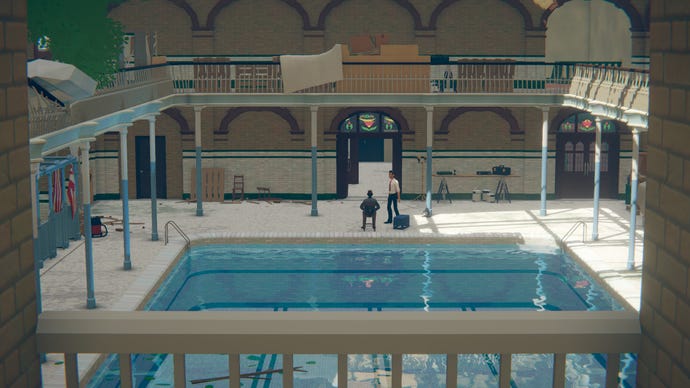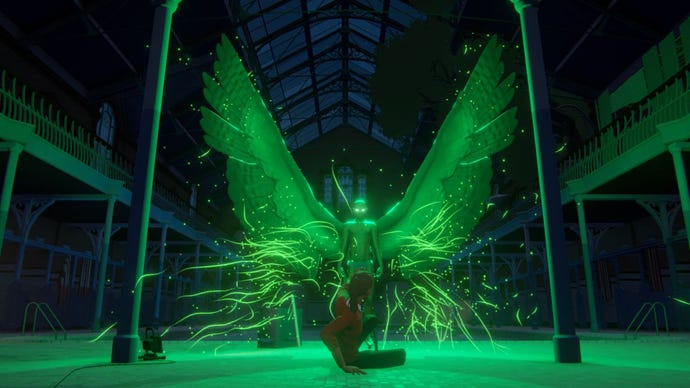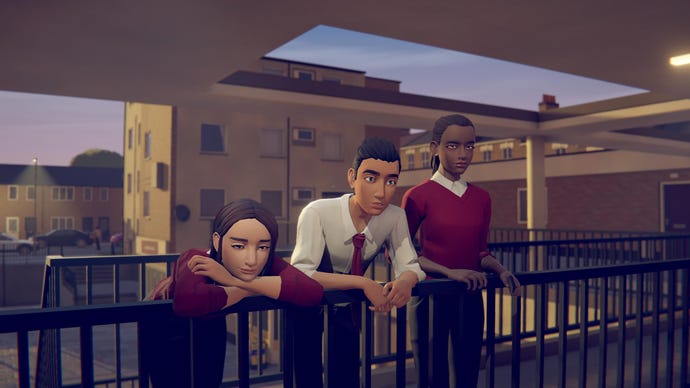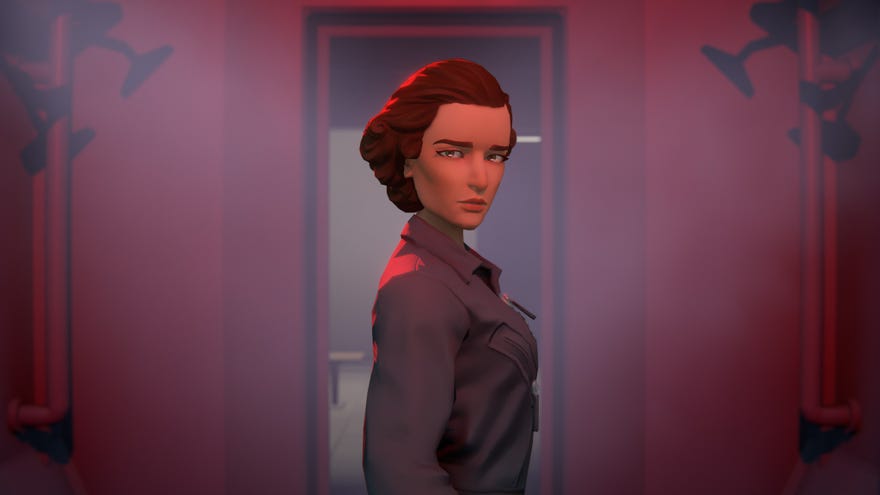Last Stop was almost a spiritual successor to Virginia
It was initially set in America before the UK-based devs brought it home
Developers Variable State have gone from Virginia, a first-person game set in rural America about FBI agents and mild supernatural-ness, to Last Stop, a set of anthology adventures following all sorts of supernatural shenanigans in London. While the games share a similar weirdness, they're both pretty different experiences - but that wasn't always going to be the case. I had a chance to chat with Last Stop's co-directors, who told me Last Stop was originally set in America before they decided to bring it home to the UK.
We also talked about the difficulties with getting voice actors in the same room during a pandemic, and how they designed a character with some interesting views on game development to remind themselves not to become too self-serious.
"The game was originally pitched to be much more like a spiritual sequel to Virginia," co-director Jonathan Burroughs tells me. "It was set in America, and the tone would've been darker than what we've ultimately ended up with."
Initially, Last Stop was set in a small town in the US, an idea the devs at Variable State found romantic after making Virginia. But they wanted Last Stop to have lots of natural dialogue, which they felt wouldn't have been very authentic in a setting where they would be relying on second-hand storytelling and references from films and TV.
"That prompted the shift in location to the UK, and it was hugely liberating, because it allowed us to get art reference right on our doorstep, to go out into a city which a lot of us were already familiar with," Burroughs says.
"It meant we could get excited about putting the London Underground in the game, but also the lesser-seen parts of London. It wouldn't be a tourist-brochure version of the city, it would be Zone 2 and outwards, it would be the smaller, weirder things that can be exciting about London."

It's hard not to compare Last Stop to something like Doctor Who and its very British sci-fi vibes, or even Black Mirror's anthology of weirdness. But the devs tell me the game wasn't really inspired by those things. For the general form, they were influenced by films like Magnolia and Shortcuts, while each story arc in the game has its own references - like Freaky Friday for the body-swap story Paper Dolls, and a True Lies or James Bond dimension to the spy story Domestic Affairs.
"Virginia wasn't an expressly supernatural thing, but we were interested in probing that more and making something to do with magic and science fiction," Burroughs adds.
Last Stop is evidently pretty different from Virginia in a number of ways, but one of the big ones that really affected development was voice acting. While Virginia is a rather quiet game, Last Stop's characters are all pretty chatty folks. Variable State wanted lots of natural-sounding dialogue, and were inspired by the casual conversations you hear in games like Oxenfree and Firewatch. Burroughs tells me that to get their actors to sound authentic, they decided to have all of them together when recording lines.

"With previous games I've worked on, actors recorded in isolation, or reacted to someone else's performance from a recording with them both being there," he says. "We wanted to get all the actors in a scene in a room at the same time, to work together, refine the roles, and discover the characters together."
Of course, this was all easier said than done when the world went into pandemic lockdowns at the start of last year.
"When Covid hit, it produced some interesting challenges. But we worked with an amazing audio production team that managed to figure everything out and make the recording environments Covid-safe, so we were able to carry on working," he tells me. "But it meant that instead of all the actors being in one room, they were in separate studios in the same building, but able to see and hear each other over webcam to work together. "
Co-director Lyndon Holland adds that some of the actors were in different buildings, or even different cities, but they'd all be in contact throughout the recording sessions. Rather than doing all the recordings in one stint, they also re-wrote and re-recorded lines throughout the game's development as it evolved over the years. While this helped refine the dialogue to get the performances they really wanted, it did come with another unique problem.
"We recorded two quite young members of the cast a couple of years ago. But when we came back to record more lines later, they'd grown up," co-director Terry Kenny tells me. "We had three actors play Dylan [one of the characters in the story Stranger Danger], but they grew up so fast their voices had changed [laughs]. Everybody's credited, and they were all excellent actors, but each one's voice broke."
"You can see why a lot of TV shows and films don't use kids' voices and use adults putting on kids' voices instead [laughs]," Holland adds. "We wanted the authenticity of using child actors though, even if it meant we had to redo a lot of stuff."

The dedication to getting the voice acting right comes across in-game, too. In her Last Stop review, Alice Bee said that "the voice cast is universally great," and, "you can tell they had fun with the script". She also mentions that the characters are "wonderfully diverse", and they play against the expectations you might have of them.
There's one character in particular I had to ask Variable State about, however, and that's Jack. He's a game developer who's part of the Paper Dolls story, and uh, he has some very... interesting views, I suppose, of what games should be like. Burroughs tells me his personality was invented to be a check on the actual developers he was working with, to remind them not to take themselves too seriously.
"He was meant to be a version of ourselves taken to the extreme. It was useful to have him there to remind ourselves not to become like that," he says.
"But in a whimsical way, I think," Kenny adds. "I hope people don't see him as too mean-spirited, because I think he's quite likable - but maybe a bit naive. Last Stop would be very much his sort of game, but I imagine he'd prefer it if it were all in black and white [laughs]."
Last Stop (in full colour) is out now on Steam, priced at £20/€21/$25.


